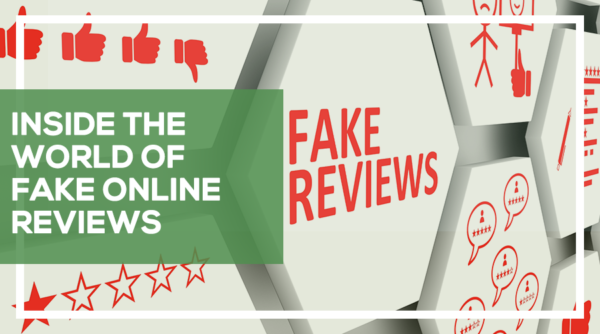
Reviews are highly valuable for your practice. Just how valuable? 90% of people will research local businesses on the internet first before deciding to visit them. Most people admit to avoiding businesses because of poor reviews.
Your online reputation is often a key deciding factor for prospective patients when it comes to selecting the provider they will go to for a cosmetic treatment. Those who want to learn about the experiences of real patients like themselves look up ratings and testimonials on Google, Facebook, RealSelf, and various patient forums.
Unfortunately, not every review you get will be based on a real experience. Illegitimate ones can be misleading and detrimental to your practice. But what exactly is driving this fake review phenomenon?
The Fake Review Industry
So, how exactly do fishy reviews happen? Surprisingly, most are written by actual humans instead of bots, and it’s a thriving industry.
Freelance writers, including those from outside of the U.S., are willing to type out scores of opinions from different accounts in exchange for payment or incentives from the companies who hire them. After all, anyone can easily set up a Gmail or Facebook account.
Tens of thousands of inauthentic, manufactured, or paid for reviews are posted each month. This is partially due to the pressure brands are under to build a strong online presence.
Some of them are deliberately posted by the employees, friends, or family members of the business. Alternatively, someone could have mistakenly left a review meant for another practice or it could have been commissioned by your competitors.
Phony Review Red Flags
Identifying what is real and what isn’t can be tricky. Keep in mind that while no one likes getting 1-star reviews, not every response from an unhappy consumer is necessarily a fake one.
If the review is by someone with a conflict of interest like an employee, or the reviewer hasn’t purchased your service, these fall into the “fake” category.
Here’s how you can tell that a review isn’t what it seems:
They’re Not A Patient
If something seems off about a review, have a look at your client database; it’s possible that the poster has never been one of your patients.
The Wording is Strange
When a review is insincere or spammy, it will often stand out because the comments made will be very general and not offer specific details about the experience or product. These reviews are often generic as if they were copy and pasted from a base template. If you think this is the case, have a look at the other reviews posted from the same account to see if they are similar and try searching for specific phrases on Google by enclosing them in quotation marks.
Fake reviews tend to be more extreme in their approval or disapproval, use personal pronouns and verbs often, and be less subjective and anecdotal than actual reviews. Some are full of spelling and grammatical errors.
Their Profile is Suspicious
Be wary of any reviewers using a blank or impersonal avatar. Have a look at their profile to see which other companies they’ve reviewed previously.
How to Stop Them
The top review aggregator platforms allow cosmetic practices to manage defamatory or inauthentic statements. On Google My Business, for example, if you can prove that the review in question violates the site’s review policies, you can have it removed quickly. Simply select the review and flag as inappropriate. Facebook business page recommendations can also be reported in a similar manner.
Healthcare marketplace RealSelf has a moderation team assess reviews before they are posted and re-moderate them routinely to ensure that they’re written by actual patients. They also encourage users to contact them if they notice anything questionable and will remove reviews if they violate their terms of service.
Rather than ignoring them or attempting to hide them, one of the best ways of addressing your negative reviews is simply responding to them directly in a professional manner. It’s actually more disappointing to consumers when you don’t reply at all.
In fact, surveys have shown that 97% of those who read reviews are also looking at companies’ responses to them. If you’re unsure about a vague comment, you can always request additional details from the reviewer.
Another way of handling fake or unfavorable reviews is simply by gaining more positive, genuine ones from patients. The negative feedback will get buried and become less impactful. Note that research has shown that having a few bad reviews can actually be beneficial – most users lose trust in a review section that seems overly perfect.
Whether positive or negative, fake reviews are a major problem and something to take seriously. They are not only unethical but can also incur penalties for a business, spread misleading information, and cause your consumer base to lose trust in you. The safe and smart strategy when it comes to reviews is to continue to remain vigilant in identifying fake reviews, and remain responsive when it comes to negative reviews, while always generating new, positive ones.

Amy Rock
Amy is a copywriter at MetaMed Marketing who works closely with the copy manager to produce articles, press releases, and other writing-based tactics, as well as copy for clients’ websites.



